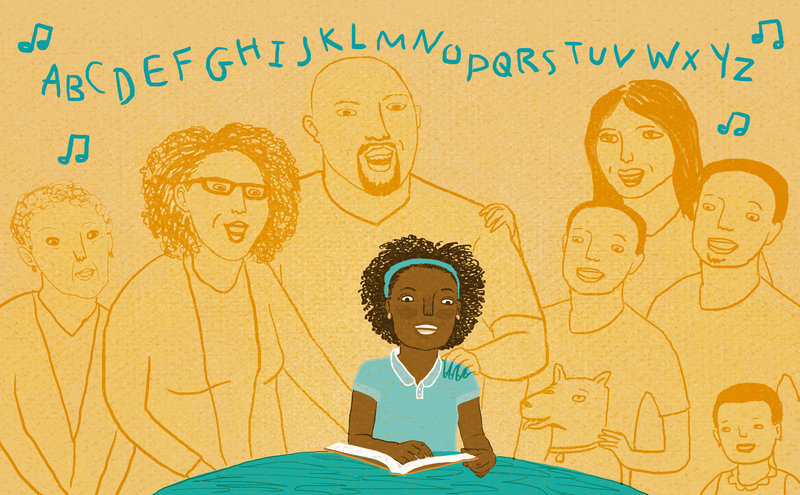What factors can sustain indigenous youth mentoring programs?
Sanchez, J., Maiden, J., Barton, E., Walters, L., Quinn, D., Jones, N., Doyle, A. K., & Lim, D. (2023). Factors that sustain indigenous youth mentoring programs: A qualitative systematic review. BMC Public Health, 23(1), 429.
https://doi.org/10.1186/s12889-023-15253-2
Summarized by Ariel Ervin
Notes of Interest:
- Indigenous youths have disproportionally lower quality mental health and well-being ratings than their non-Indigenous peers worldwide.
- Although youth mentoring is known for promoting positive health outcomes and better lifestyle behaviors, there’s still a dearth of research about how mentorships can improve Indigenous youths’ mental health and well-being.
- This study pinpoints the hurdles of developing, implementing, and maintaining Indigenous youth mentoring programs. It also evaluates which factors can help preserve them across various contexts while promoting positive mental health outcomes.
- The researchers identified five factors that positively affected Indigenous youths’ mental health and well-being.
- Establishing cultural relevancy – recognize and understand Indigenous cultures
- Facilitating environments – establish safe spaces for developing supportive relationships
- Building relationships – forming trusting relationships between people, communities, and cultures
- Facilitating community engagement – Engaging community members in program activities
- Leadership responsibilities – promote a sense of empowerment through program engagement
- These factors had a positive impact on the psychological, social, behavioral, attitudinal, and academic performances of mentees, indicating they can potentially boost the community’s resilience.
- More respectful and trustful mentors demonstrated more commitment to the community and were more flexible in fulfilling their mentees’ needs.
- Many mentees who developed perceptions of social support displayed help-seeking behaviors outside of their programs.
- Culturally-tailored mentoring programs that address the needs of their respective communities are more likely to be effective, regardless of the program objectives.
- Holistic strategies that comprise solid community partnership connections that build upon Indigenous youths’ fortitude have the best resilience and mental health outcomes.
- Future studies of this subject need to investigate how programs can provide and sustain long-term benefits.
Introduction (Reprinted from the Abstract)
Background: Indigenous youth worldwide continue to experience disproportional rates of poorer mental health and well-being compared to non-Indigenous youth. Mentoring has been known to establish favorable outcomes in many areas of health but is still in its early phases of research within Indigenous contexts. This paper explores the barriers and facilitators of Indigenous youth mentoring programs to improve mental health outcomes and provides evidence for governments’ response to the United Nations Declaration on the Rights of Indigenous Peoples.
Methods: A systematic search for published studies was conducted on PubMed, Embase, Scopus, CINAHL, and grey literature through Trove, OpenGrey, Indigenous HealthInfoNet, and Informit Indigenous Collection. All papers included in the search were peer-reviewed and published from 2007 to 2021. The Joanna Briggs Institute approaches to critical appraisal, data extraction, data synthesis, and confidence of findings were used.
Results: A total of eight papers describing six mentoring programs were included in this review; six papers were from Canada, and two originated from Australia. Studies included mentor perspectives (n = 4) (incorporating views of parents, carers, Aboriginal assistant teachers, Indigenous program facilitators, young adult health leaders, and community Elders), mentee perspectives (n = 1), and both mentor and mentee perspectives (n = 3). Programs were conducted nationally (n = 3) or within specific local Indigenous communities (n = 3) with varying mentor styles and program focus. Five synthesized findings were identified from the data extraction process, each consisting of four categories. These synthesized findings were: establishing cultural relevancy, facilitating environments, building relationships, facilitating community engagement, and leadership responsibilities, which were discussed in the context of extant mentoring theoretical frameworks.
Conclusion: Mentoring is an appropriate strategy for improving general well-being. However, more research is needed to explore program sustainability and maintaining outcomes in the long term.
Implications (Reprinted from the Discussion)
This review examined current literature on Indigenous youth mentoring programs and found five facilitating factors in the design, delivery, and sustainability of these programs to improve general mental health and wellbeing. These factors, found across all programs, demonstrated positive influences in social, behavioral, psychological, attitudinal, and academic performances of Indigenous youth, which in turn suggested increased overall resilience in these communities. Theoretical implications of the findings are discussed below, with reference to extant literature within the context of cultural relevancy, facilitating environments, building relationships, community engagement and leadership aspects of mentoring.
The significance of ensuring cultural relevancy within the programs can be considered in reference to the Multicultural Feminist Mentoring theory, which suggests that in order for mentors to have multicultural competence in meeting the unique needs of diverse mentees, the skewed power structure of the dyadic relationship should be recognized and the mentee should be equipped with tools to be empowered when encountering systemic racism [46]. Mentors in the participating programs suggested reflection on this concept:
I don’t want to be an ignorant person… I just wanted to personally come into closer contact with it so I understood for myself what it meant, rather than just – a lot of the ways that Indigenous people are treated in Australia it’s very distant. I just don’t think that’s helpful and I just don’t want to be ignorant about it [44 p. 400].
It is important to consider the mentee, the mentor and the mentoring relationship being affected by a series of social and cultural contexts, which can either empower or disenfranchise the mentee [47]. This perspective on mentoring advocates for an explicit concern for one’s holistic growth and well-being at the intersections of work and family lives [48], which links into community supports contributing to the success of the discussed programs.
To access this article, click here.














